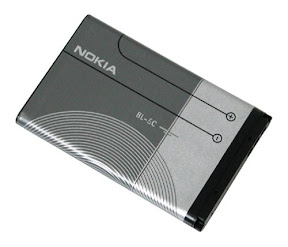You may buy a screen protector for your cell phone, and a shock-absorbing sleeve for your laptop, but have you ever thought about doing something extra to care for the batteries that power most of your everyday electronics? Lithium-ion batteries, or LIBs, are used in nearly every electronic device, from the aforementioned laptops and iPods to cell phones and digital cameras. Though LIBs, like all batteries, will not last forever, you can substantially expand the lifespan of them with a proper battery care.
LIBs are the primary choice of battery for most electronic devices, especially those that are portable, because they provide the most energy for their size and are also slower to lose charge when not being used, unlike traditional disposable alkaline batteries. However, LIBs are also more costly than alkaline batteries, so while you may not have cared to treat your alkaline batteries well, you should consider going the extra step to ensure that your LIB receive some extra attention and consideration. One of the best ways to prolong your LIB’s lifespan is to use it regularly. With regular use, the chemicals inside the LIB will stay active and receptive to holding and providing energy instead of getting old and stale. The best way to efficiently use your LIB is to have it run until it is at least halfway empty before charging it again. In addition, you should periodically let your battery run until it is nearly empty (but not completely empty) before charging it back up again. This action lets the battery readjust its gauge so that it can more accurately tell users when it will need charging again. This is especially important in electronics like laptops, where battery life is estimated.
By the same token, do not leave your LIBs inside electronic equipment if that equipment is running off another power source, such as using a wall adapter. This could potentially overcharge your LIB, causing it to lose power capacity, as well as increases the potential for the battery to overheat. When you plan to work for a long time and prefer to use a wall power outlet as your power source, use your LIB until it is only about 40% charged, then remove it from your laptop or other electronic device if possible. This is the recommended capacity in which to store unused LIBs because LIBs stored at 100% capacity tend to lose their power capacities faster than those left at a lower 40% capacity. In addition, make sure that you store these batteries in a cool place that is neither a cold environment nor a hot one. For example, your everyday closet or desk drawer should be a good place for LIB storage, whereas a hot car or cold refrigerator would not be ideal places to store the batteries.
Simply put, all you need to do to get the most out of your Lithium-ion battery is to use it regularly and avoid overcharging it or draining it completely. This way, you can be sure that your battery will stay functional and useful for years to come.
RELATED POSTS
View all
